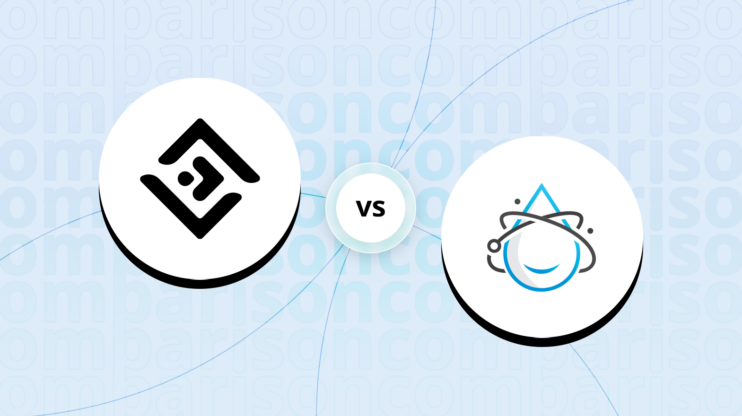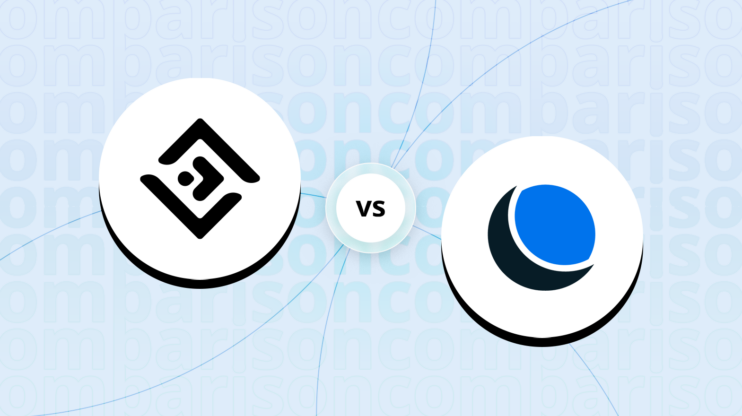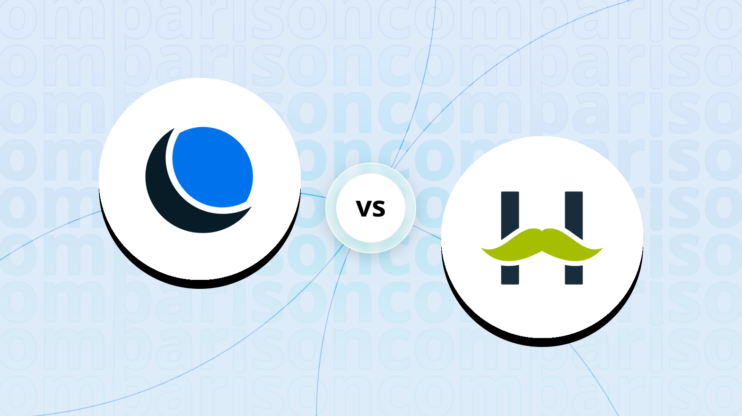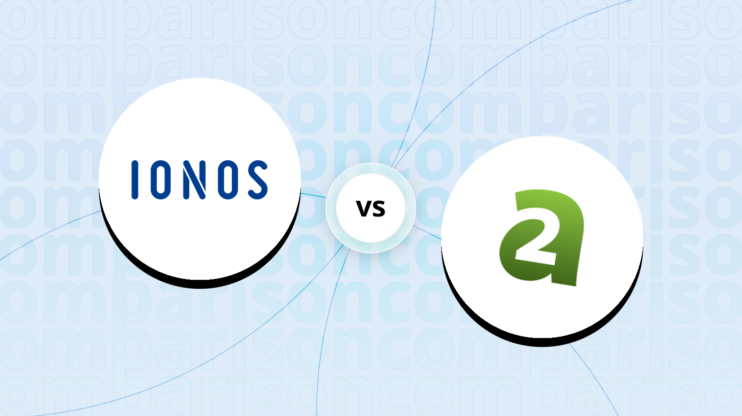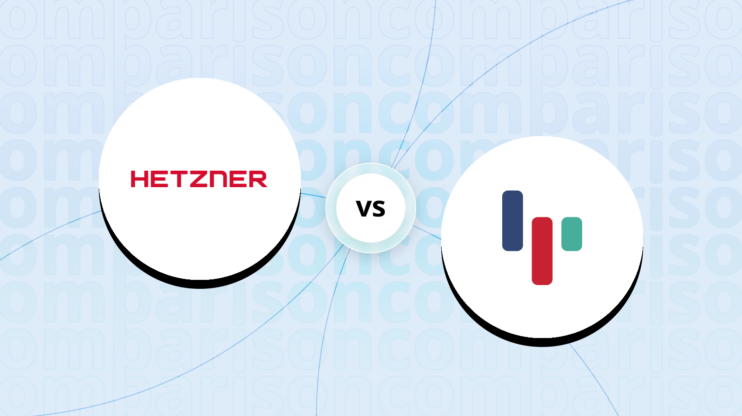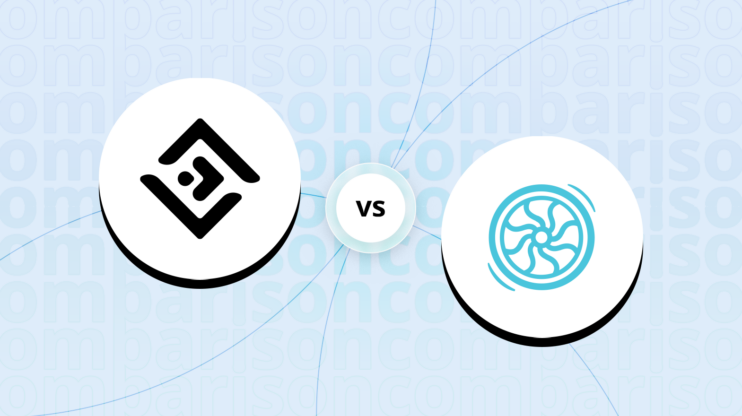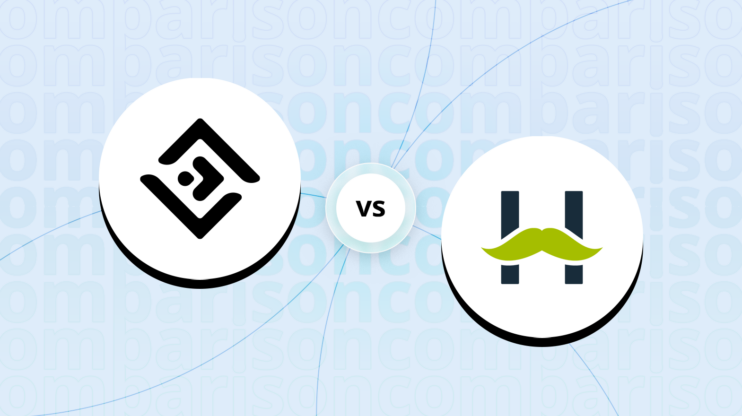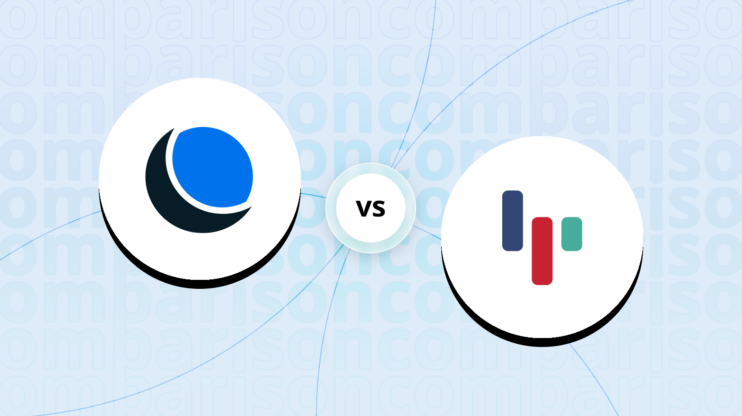Final verdict
Looking over DreamHost vs. Liquid Web, each hosting provider presents distinct strengths and caters to different user needs.
-
Liquid Web (Overall grade: 8.4)
is particularly noted for its exceptional uptime, robust performance, and stellar customer service. With a 100% uptime guarantee bolstered by industry-leading SLA credits and proactive monitoring, Liquid Web ensures high availability and consistent performance. The hosting provider excels in high-traffic sites and ecommerce platforms, delivering fast performance with technologies like AMD EPYC and Intel Xeon processors, NVMe storage, and a 10 Gbps network. Managed security features including ServerSecure protection and integrated firewalls, as well as compliance solutions like HIPAA, make it a favorable choice for businesses prioritizing growth, stability, and security. However, its higher price point and focus on managed hosting might not be suitable for users needing basic, inclusive features.
DreamHost (Overall grade: 8.2)
is celebrated for its user-friendly interface, affordable plans, and inclusive features. Optimized for WordPress hosting, DreamHost combines SSD storage, server-level caching, and NGINX hosting to offer swift load times. It provides flexible scalability options manually controlled by the user and offers a variety of plans with features like free domain registration, unlimited storage, and automated backups. DreamHost’s custom-built control panel and streamlined migration processes cater to both beginners and advanced users, enhancing its appeal. Despite not offering phone support and some users reporting occasional slowdowns and customer service issues, its overall value, privacy focus, and reliability make it a strong choice for those seeking straightforward, cost-effective hosting solutions.
 Overall grade:8.2 |
 Overall grade:8.4 |
|
|---|---|---|
| Uptime and Availability | 8.5 | 9.2 |
| Hosting Performance | 7.8 | 7.7 |
| Hosting Security | 7.8 | 9.3 |
| Price | 8.2 | 8.0 |
| Hosting Features | 7.9 | 6.4 |
| Ease Of Setup | 8.9 | 8.7 |
| User Management | 8.1 | 8.3 |
| Customer Support | 8.3 | 9.4 |
| User feedback | 4/5 | 4.3/5 |
Hosting types offered
Both platforms provide a variety of hosting types, each designed to meet the different needs of users.
 |
 |
|
|---|---|---|
| Shared hosting | ||
| Cloud hosting | ||
| WordPress hosting | ||
| Ecommerce hosting | ||
| VPS hosting | ||
| Dedicated hosting |
Although both offer a variety of hosting plans tailored to different needs, in
certain cases, one platform may prove to be more suitable.
Detailed comparison
Uptime and availability
Evaluates the average uptime statistics, uptime guarantee and overall availability of the hosting
provider
Score Components:
- Uptime percentage (30%): evaluates the uptime statistics in given period of time
- Uptime guarantee (20%): Assesses if the platform offers an uptime guarantee and
whether the actual uptime matches the promised guarantee. - General performance (25%): Evaluates how fast is the average response time and overall
it’s stability. - Responsiveness (10%): Adaptability to different devices and screen sizes.
- Availability (25%): Reflects the total downtime and number of outages.
 8.5
8.5
 9.2
9.2
🏆 Winner Liquid Web: Exceptional uptime and availability with stellar customer service.

Liquid Web boasts a 100% uptime guarantee, underscored by industry-leading SLA credits for downtime. Their multi-server environments with managed replication ensure high availability. Proactive Sonar™ Monitoring and a 30-minute hardware replacement SLA further reinforce their commitment to maintaining service.

DreamHost similarly offers a 100% uptime guarantee and delivers excellent performance metrics, including fast server speeds. Performance tests highlight DreamHost’s stability, although a 99.83% uptime recorded by Tooltester over a year shows room for improvement. Both providers are reliable, but Liquid Web’s proactive measures and customer service features make it the preferred option.
Hosting performance
Score Components:
- Hosting speed (30%): This includes SSD quality, Load times, PageSpeed score ranges,
additional information on website speed, built-in plugins for performance enhancement, available caching
methods, and CPU/RAM options - CDN (20%): Considers whether CDN is available or not, whether it’s free or paid, and
the quality of the CDN service - Available data centers (30%): Evaluates the number of data centers and their locations
globally. - Scalibility (20%): Looks at whether elastic scaling is available, the process required
to scale (manual upgrade vs. automatic scaling), the presence of dedicated servers, and the costs
associated with scaling.
 7.8
7.8
 7.7
7.7
🏆 Winner: DreamHost: Providing high speed and reliable hosting solutions.
When comparing the general performance of DreamHost and Liquid Web, several factors come into play. DreamHost offers high-performance cloud hosting with SSD storage, server-level caching, and NGINX hosting which ensures swift load times and efficient handling of concurrent connections. In contrast, Liquid Web uses AMD EPYC and Intel Xeon processors alongside NVMe or SSD storage for quick data access, complemented by a 10 Gbps network. Both providers guarantee 100% uptime, but DreamHost emphasizes uncapped bandwidth and RAID 1 storage for added reliability. While DreamHost offers automatic software updates and multi-factor authentication for security, Liquid Web includes ServerSecure protection and integrated firewalls. Both services offer free SSL certificates and 24/7 support, making them competitive choices.
Website speed
DreamHost’s use of SSD storage, server-level caching, and NGINX hosting delivers significant speed improvements, reducing load times and enhancing performance, especially for websites under its Managed WordPress Hosting (DreamPress). Liquid Web, leveraging AMD EPYC and Intel Xeon processors, along with NVMe storage, ensures quick data access and minimal delays. The inclusion of Object Cache Pro with its Managed WooCommerce Hosting also supports faster website operations. Both hosts aim at providing fast and reliable website experiences, but DreamHost’s built-in caching facilities give it an edge by eliminating the need for additional plugins.
Scalability
DreamHost allows easy scaling with expandable RAM and storage options, making it straightforward to upgrade your plan as your site grows. This scalability is manually controlled, requiring users to choose higher-tier plans as needed. Liquid Web also offers easy scalability with autoscaling features that adjust server resources automatically based on demand, reducing downtime and manual intervention. They provide dedicated servers with extensive configurations, although specific costs for scaling aren’t transparent. DreamHost’s VPS and cloud hosting options are more flexible in terms of price, starting at $0.0075/hour for cloud hosting, while Liquid Web’s approach is more about dynamic adjustments without extra user management.
Hosting security
and regulatory requirements
Score Components:
- Technical security measures (40%): This includes encryption, firewalls, DDoS
protection, secure configurations, server monitoring, access control and availability of security addons
(e.g Sitelock security). - Operational security measures (30%): Encompasses data privacy, backups and data
redundancy. - Compliance and certifications (20%): Adherence to legal and regulatory requirements
(e.g., GDPR, HIPAA) and possession of certifications (e.g., ISO 27001, SOC 2). - Business and reliability (10%): Factors in the provider’s reputation, uptime
guarantees, and customer support.
 7.8
7.8
 9.3
9.3
🏆 Winner Liquid Web: Offers extensive security measures and compliance features.
Both DreamHost and Liquid Web, have notable differences in their approaches to technical and operational
security, as well as in their compliance with regulations.
Technical security measures:
DreamHost and Liquid Web both offer SSL certificates. DreamHost includes free SSL certificates from Let’s Encrypt, while Liquid Web provides SSL certificates that ensure site protection. Liquid Web excels with features like hardened OS configurations and the F5 AIP Intrusion Detection System, which DreamHost does not provide. Both services support current PHP versions, including PHP 8. DreamHost offers OPcache to improve PHP performance by compiling code once and storing it in memory. Liquid Web’s data encryption at rest is another feature distinguishing it from DreamHost.
Operational security measures:
DreamHost offers a range of operational security measures, including multi-factor authentication, secure shell access, SFTP, and RAID 1 storage. Liquid Web takes it further by offering firewalls, VPNs, a web application firewall, and on-site support 24/7/365. DreamHost provides DDoS protection and malware scanning with its DreamShield service, while Liquid Web also ensures real-time monitoring to mitigate sudden attacks, offering more comprehensive coverage in these areas.
Compliance and certifications:
Both hosts meet the GDPR requirements, but Liquid Web also provides HIPAA compliant hosting solutions, which DreamHost lacks. DreamHost is PCI compliant for its own sites but requires customers to obtain their own PCI certification. Liquid Web offers fully managed PCI compliance solutions, including scans and remedial services. Liquid Web holds several key certifications, including SSAE-22, ensuring high standards of security.
 |
 |
|
|---|---|---|
SSL certificate |
Free, professionally signed |
Provided |
Additional security features |
MFA, DDoS Protection |
Firewalls, VPN, Intrusion Detection |
PHP versions |
PHP 8, OPcache |
Various PHP versions |
GDPR compliance |
Yes |
Yes |
HIPAA compliance |
No |
Yes |
PCI compliance |
Customers must obtain |
Provided |
Hosting features
Score Components:
- Domains (20%): Assesses the availability of a free domain, domain purchase options, and
pricing - Email (15%): Considers if the provider offers full email hosting, or is reselling
third-party service, and if the email is only transactional or not - Website builder (15%): Checks if website builder is available, and it’s user
friendliness and overall the level of customization allowed. - Staging environment (20%): Determines if a staging environment is available, allowing
for testing changes before going live. - FTP & SFTP accounts (10%): Evaluates if and how easily users can access FTP and
SFTP accounts - Git and SSH access (20%): Assess whether Git is integrated into the hosting service and
if SSH access is provided
 7.9
7.9
 6.4
6.4
🏆 Winner DreamHost: DreamHost offers robust features with various plans, including free domain registration and email hosting, making it ideal for many users.
DreamHost’s hosting packages cater to diverse user needs, from beginners to advanced developers. They offer a simple website builder with their plans, which suits individuals looking for user-friendly, straightforward setups. DreamHost includes a free domain, privacy protection, automated backups, and a 100% uptime guarantee with many hosting plans. Notably, DreamHost provides unlimited storage and SSDs on all plans, which enhances performance and reliability. Customers also benefit from free SSL certificates, quick WordPress setup, and professional email addresses. These offerings, alongside being employee-owned and their open-source commitment, make DreamHost a strong contender for those valuing inclusive services with a focus on privacy and security.
Liquid Web, in contrast, specializes in fully managed hosting tailored to performance-intensive applications. The platform doesn’t specifically feature a website builder, focusing instead on backend robustness, such as VMware Private Cloud and HIPAA-compliant solutions. Liquid Web stands out with its managed WooCommerce hosting and customizable Windows hosting. They provide a 59-second initial response guarantee and extensive support, ensuring continual management and security updates. While they offer root access indicating FTP/SFTP and SSH capabilities, some services like free domain registration aren’t explicitly highlighted. This makes Liquid Web suitable for businesses needing high availability and compliance-driven environments, although it might not be the best fit for those needing basic, inclusive features like a website builder.
 |
 |
|
|---|---|---|
Free domain |
Yes |
Not mentioned |
Free SSL |
Yes |
Yes |
Email hosting |
Yes |
Yes |
Website builder |
Yes |
No |
Staging environment |
Yes |
Yes |
FTP & SFTP accounts |
Yes |
Yes |
Git and SSH access |
Yes |
Yes |
Free backup |
Yes |
No |
Money back guarantee |
Yes |
No |
a location.
As a result in rare cases the features mentioned here can differ from the ones you see on their websites.
Both providers support a range of users from beginners to experts with user-friendly website builders and WordPress staging areas. However, in terms of developer tools, both DreamHost and Liquid Web offer robust options including SSH access, support for multiple programming languages, and Git for version control, thus appealing to developers looking for advanced capabilities.
Email services:
Email services at DreamHost includes professional email addresses with their plans, providing comprehensive email hosting. Liquid Web, while offering email hosting, emphasizes transactional email capabilities and does not explicitly include free email services. Users may need to integrate third-party email solutions with Liquid Web, making DreamHost the more attractive option for straightforward, inclusive email hosting.
Price
Score Components:
- Plan value (40%): What each pricing tier offers.
- Transparency and clarity (30%): Clearness of pricing structures.
- Flexibility of plans (20%): Range of options to suit different budgets.
- Hidden costs (10%): Additional expenses not included in the plan.
 8.2
8.2
 8.0
8.0
🏆 Winner
DreamHost: DreamHost scores slightly higher overall, mainly due to the robust features included in their plans and the transparency of what’s included.
Evaluating the pricing of plans among various hosting providers can be complex due to their differing pricing and renewal strategies. Additionally, certain plans require annual commitments, which adds to the difficulty of making comparisons. The prices listed are based on monthly commitments; plans requiring annual commitments are indicated. Additionally, although some providers offer identical plans for WordPress and shared hosting, we have created separate tables for each to enhance clarity.
DreamHost provides competitive pricing for various hosting services like shared hosting, VPS, and managed WordPress hosting. Their shared starter plan starts at $2.59 per month, making it a budget-friendly option with features such as unlimited storage and free SSL certificates. In contrast, Liquid Web’s plans for managed WordPress hosting begin at $21 per month for the Spark plan, which offers 15GB of storage and 2TB of bandwidth. DreamHost’s DreamPress starts at $16.95 per month and includes 30GB SSD storage and unmetered bandwidth. Both providers offer cloud hosting packages, with DreamHost’s DreamCompute priced at $0.0075 per hour or $10 per month, featuring scalable cloud computing. Liquid Web’s options are more expensive yet come with enhanced security features and higher storage capacities.
 |
 |
|---|---|
|
DreamPress $19.99
Host one WordPress website, free domain registration, ~100K monthly visitors, unmetered bandwidth, 30GB SSD storage, built-in caching, automated daily backups, on-demand backups & 1-click restore, 24/7 WordPress specialized support Value for price:8.2
|
SPARK $21
15GB storage, 2TB bandwidth, 10 PHP workers per site, 20 autoscaled PHP workers per site, can handle up to 1 site Value for price:8.0
|
|
DreamPress Plus $34.99
Host one WordPress website, free domain registration, ~300K monthly visitors, unmetered bandwidth, 60GB SSD storage, built-in caching, automated daily backups, on-demand backups & 1-click restore, 24/7 WordPress specialized support Value for price:8.2
|
SPARK+ $43
25GB storage, 2.5TB bandwidth, 15 PHP workers per site, 25 autoscaled PHP workers per site, can handle up to 3 sites Value for price:8.0
|
|
DreamPress Pro $89.99
Host one WordPress website, free domain registration, ~1M monthly visitors, unmetered bandwidth, 120GB SSD storage, built-in caching, automated daily backups, on-demand backups & 1-click restore, 24/7 WordPress specialized support, priority support Value for price:8.2
|
MAKER $87.00
40GB storage, 3TB bandwidth, 20 PHP workers per site, 30 autoscaled PHP workers per site, can handle up to 5 sites Value for price:8.0
|
 |
 |
|---|---|
|
Shared Starter $5.99
Host one website, unlimited storage, free domain registration, free SSL certificate, automated daily backups, 24/7 support Value for price:8.2
|
N/A
Value for price:N/A
|
|
Shared Unlimited $10.99
Host unlimited websites, unlimited storage, free domain registration, free SSL certificate, automated daily backups, 24/7 support, email hosting @ your domain Value for price:8.2
|
N/A
Value for price:N/A
|
 |
 |
|---|---|
|
DreamCompute $10.00/month
Scalable cloud computing, root access, SSD storage, blazing-fast networking, open APIs through OpenStack, 24/7 support Value for price:8.2
|
Intel Xeon E-2356G (32 GB RAM) $199/month
6 cores (12 threads), 3.2 GHz base (5.0 GHz turbo), 32 GB RAM, 960 GB SSD RAID-1, 10 TB bandwidth, Linux Value for price:8.0
|
As a result in rare cases the prices displayed here can differ from the ones you see on their websites.
Enterprise plans
DreamHost offers several dedicated hosting options such as the Enhanced 32 plan at $299.00/month with a 12-Core CPU, 32GB RAM, and 480GB SSD storage, all with 24/7 support and a 100% uptime guarantee. Liquid Web provides robust cloud dedicated servers starting at $159/month for Intel Xeon E-2356G with 16GB RAM and 480GB SSD RAID-1 storage, plus additional features like DDoS protection and CloudFlare CDN. DreamHost’s enterprise plans emphasize resource availability and comprehensive support, while Liquid Web aims for high performance and extensive security measures.
Ease of setup
platform.
Score Components:
- Site migration (25%): Assesses whether the provider offers tools for site migration,
either automated or manual, and whether these services are free or require a fee. - Admin panel usability (35%): Evaluates the type of admin panel provided, such as the
standard cPanel or a custom solution, focusing on its accessibility and user-friendliness for both
technical and non-technical users. - Setup features (20%): Examines the availability and ease of use of various setup
features, including FTP accounts, file managers, email account setup, PHPMyAdmin, and easy CDN
configuration. - Help center quality (20%): Measures the quality and accessibility of the provider’s
help center resources, including articles and tutorials.
 8.9
8.9
 8.7
8.7
🏆 Winner DreamHost: A user-friendly hosting provider known for its extensive support resources and ease of setup.
DreamHost offers a custom-built control panel designed for ease of use, catering to both technical and non-technical users. This panel provides comprehensive administrative tools like SFTP, Shell Access, and WP-CLI, all accessible from a centralized dashboard. One-click installations and pre-installed WordPress options simplify the initial setup, making it straightforward for beginners and efficient for experienced users. The control panel also supports account management, domain registration, and backup management, all with an intuitive interface that ensures minimal learning curve.
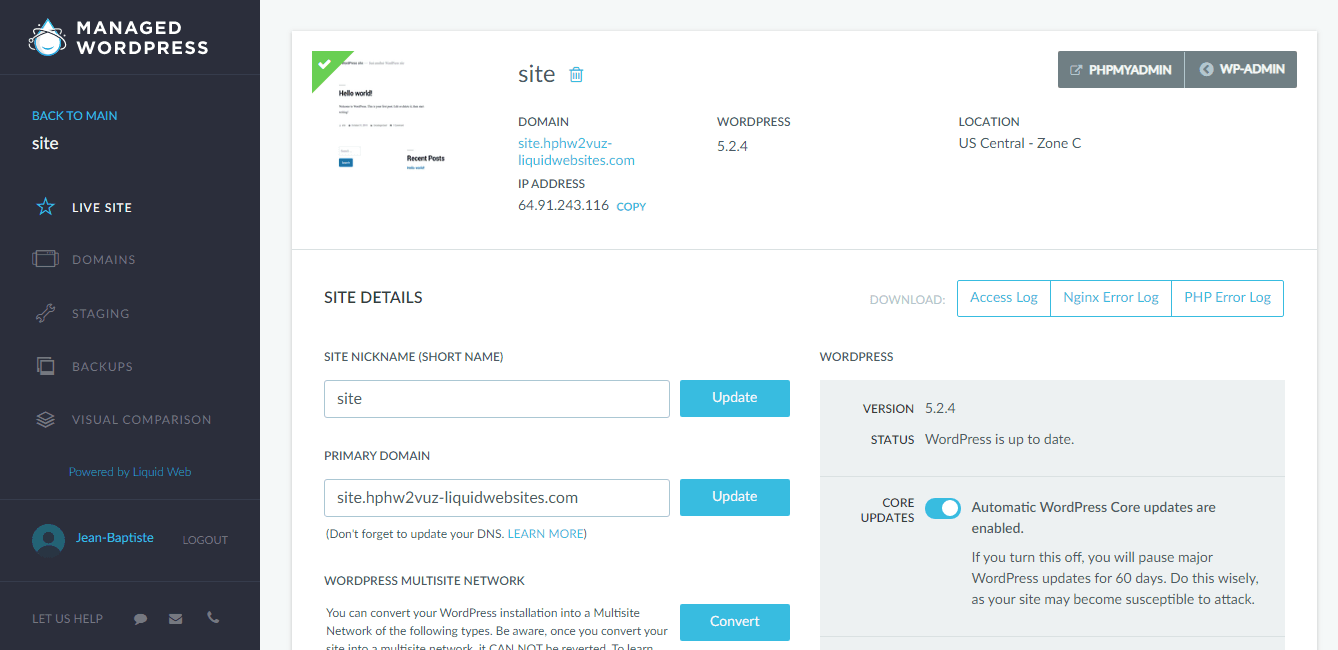
Liquid Web, on the other hand, also offers a user-friendly admin panel but is more tailored towards experienced users managing complex hosting environments. It facilitates full server and OS management, making it suitable for those requiring more advanced options. The user interface is equally accessible and offers various management tools. However, Liquid Web emphasizes full management services, making it an ideal choice for users needing proactive and comprehensive hosting solutions beyond basic site administration.
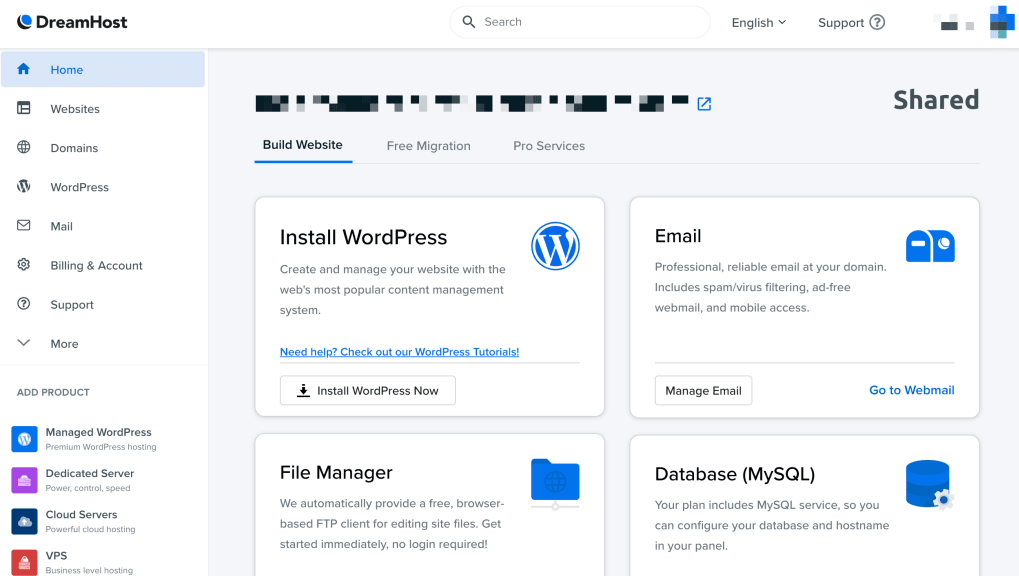
When comparing migration tools, DreamHost provides a comprehensive Migration Dashboard that offers automated site migration options. The process is straightforward, guiding users through each step with clear instructions. Once the migration is complete, users can easily point their DNS to DreamHost. This service is available at no extra cost for most plans. Liquid Web also offers migration assistance, with a focus on ensuring a seamless transition for complex environments. These services are also free, making it accessible for businesses looking to migrate larger, more intricate sites.
Regarding help center resources, DreamHost and Liquid Web both excel in providing extensive knowledge bases. DreamHost’s help center is a searchable archive comprising WordPress guides, FAQs, and tutorials, backed by 24/7 support via chat, email, and phone. Similarly, Liquid Web’s knowledge base features articles, tutorials, and specialized resources, updated regularly to cover a wide range of topics from security to common fixes. Both providers ensure that users have access to expert help around the clock.
User management
accessibility.
Score Components:
- Role customization (40%): Flexibility in creating and defining user roles and
permissions. - Ease of management (30%): User interface and tools for managing users.
- Access control (20%): Effectiveness of access control measures for different user
levels. - Scalability (10%): Ability to manage a growing number of users efficiently.
 8.1
8.1
 8.3
8.3
🏆 Winner LiquidWeb: LiquidWeb excels in user management with detailed control and customizability through its user roles.
DreamHost provides flexibility in user roles by offering unlimited SFTP users and comprehensive SSH access. This allows multiple users to securely access the server and perform command-line operations. LiquidWeb, using Plesk, provides more granular user roles such as Administrator, Webmaster, Application User, and Accountant. These predefined roles simplify the process of managing permissions and access levels, making it easier to grant specific rights without needing to micromanage each user’s capabilities.
DreamHost offers a custom-built control panel designed for ease of use, where users can manage domains, email accounts, FTP, and mailing functions. This panel includes features like the Subversion repository and Cron job scheduling, catering to more advanced users. LiquidWeb, through Plesk, provides a User Accounts Page and tools for creating, editing, and removing user roles. The Plesk interface is intuitive, allowing for straightforward user management, which can be especially useful for businesses with diverse user needs.
Both DreamHost and LiquidWeb offer robust access control measures, but DreamHost includes advanced features like password protection for directories and access to raw log files, boosting security for sensitive content. While DreamHost provides a solid basis for access control and user management, LiquidWeb scales effectively by allowing administrators to create detailed roles and permissions, ensuring efficient handling of a growing number of users.
DreamHost User Roles Table:
| Role | Description | Access Highlights |
|---|---|---|
| SFTP User | Provides SFTP access with secure logins | Can upload and manage files securely via SFTP |
| SSH User | Allows secure remote access to the server | Useful for command-line tasks and remote server management |
| Cron User | Access to the Cron job scheduler | Can automate scheduled tasks using crontab |
| SVN User | Access to Subversion repository | Manages source code versions for collaborative projects |
| Email Account User | Offers professional email with 25GB storage | Email sync, ad-free webmail, spam, and virus protection |
LiquidWeb User Roles Table:
| Role | Description | Access Highlights |
|---|---|---|
| Administrator | Full access to Plesk control panel and server management | Manage entire server including creating new Plesk users |
| Webmaster | Manage most aspects of subscriptions, DNS, mail, and FTP | Cannot create new Plesk users or modify roles |
| Application User | Limited access | Suitable for basic application operations |
| Accountant | View subscription details without modifying settings | Read-only access to subscription and financial information |
Customer support
hosting provider.
Score Components:
- Support communication channels (30%): Measures the variety of customer support types
provided (live chat, chatbot, email, phone, etc.) - Availability (20%): Assesses the availability hours for each channel, including 24/7
support options. - Technical support quality (30%): Assesses whether the provider offers comprehensive
technical support, including hardware upgrades (e.g., HDD to SSD), software installations, and web
server configuration changes. - Enterprise support (20%): Checks if there are dedicated or priority support services
for enterprise-level customers.
 8.3
8.3
 9.4
9.4
🏆 Winner
Liquid Web: Liquid Web provides quicker response times and a broader range of support options.
 |
 |
|
|---|---|---|
Phone support |
||
Live chat support |
||
Chatbot |
||
Email/ticket support |
||
Enterprise support (dedicated agent, priority support) |
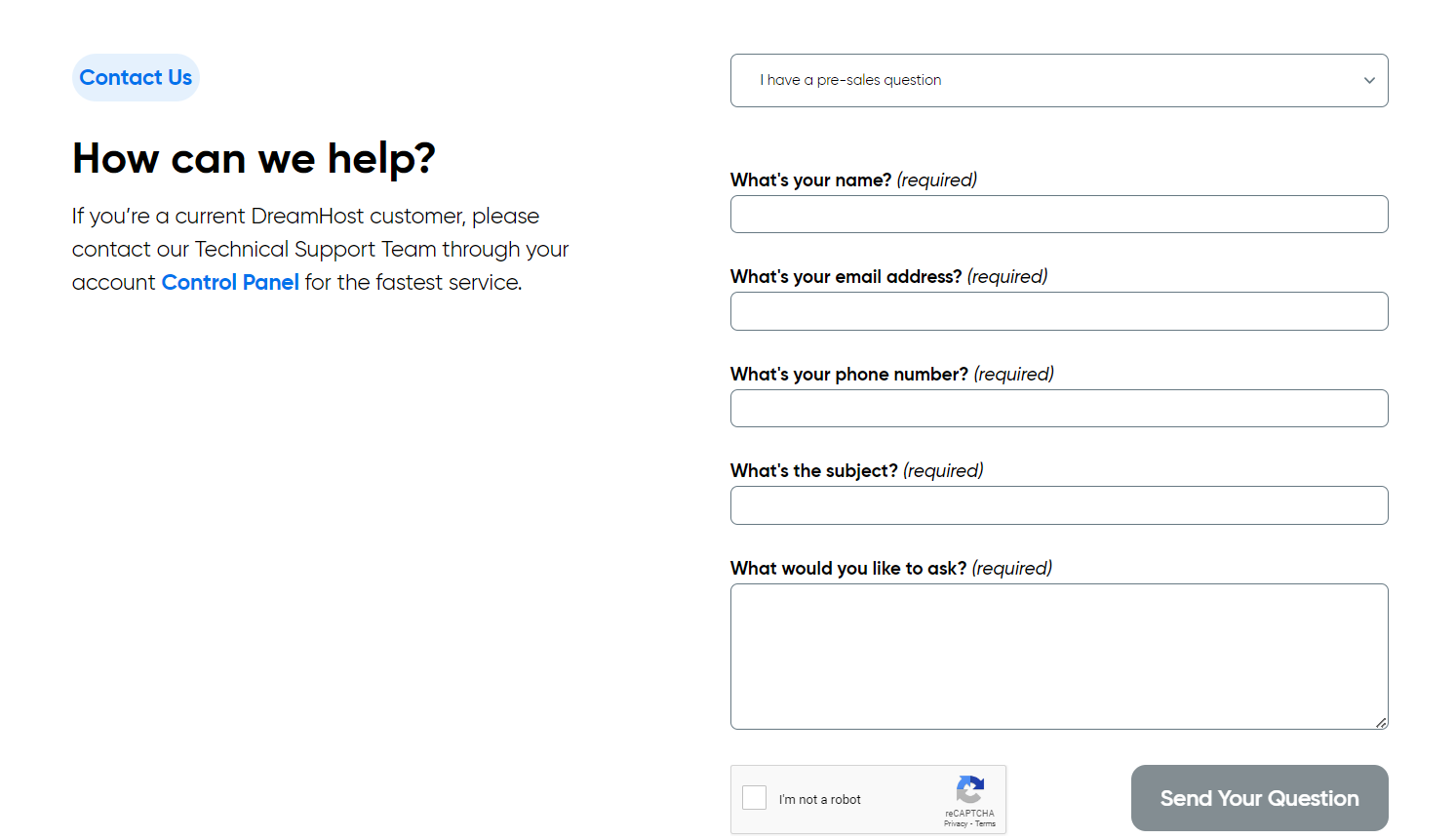
DreamHost and Liquid Web both offer 24/7/365 support, but the options and guarantees differ. DreamHost provides support primarily through chat, email, and a ticket system, with callbacks available at an additional fee for certain plans. Its multilingual support in English and Spanish, coupled with a comprehensive knowledge base, ensures users have substantial resources to tap into. However, the lack of direct phone support may be a limitation for some users.
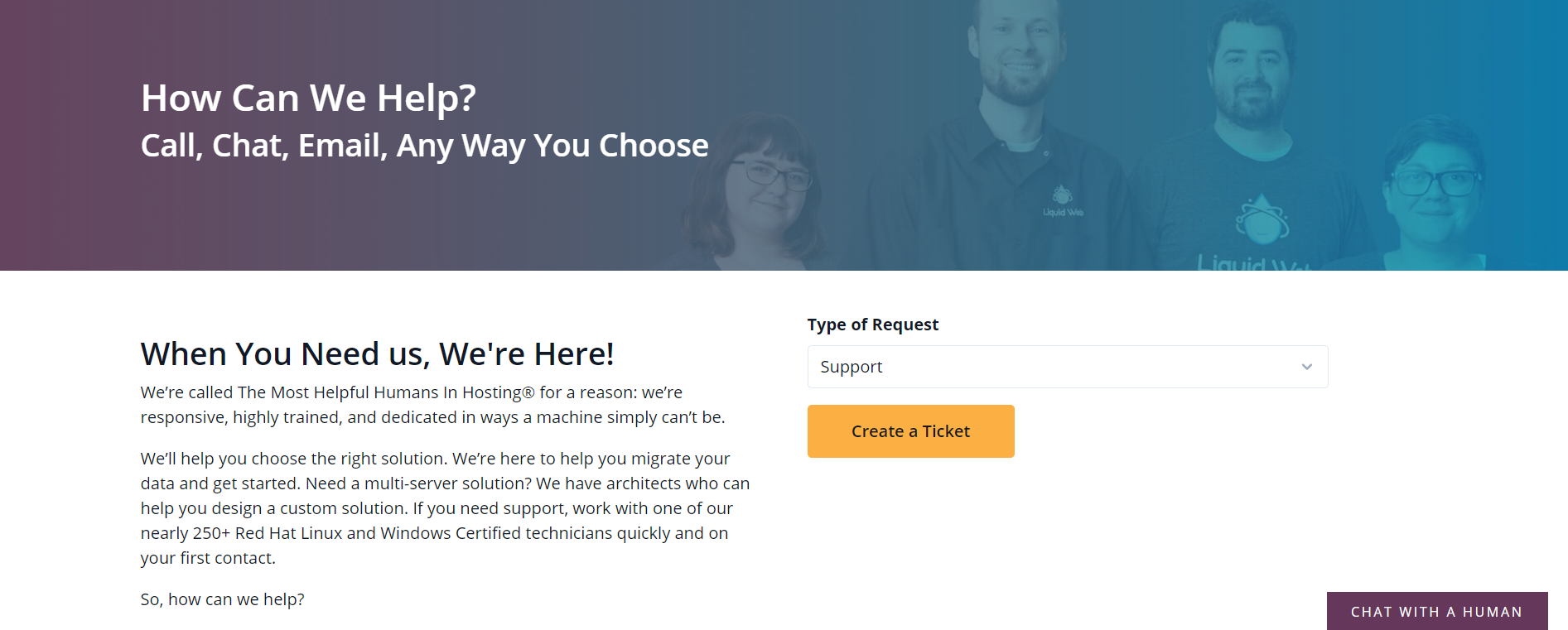
Liquid Web distinguishes itself with a robust set of contact methods, including direct phone support with a 59-second initial response guarantee for both phone and chat. They also offer a 59-minute response guarantee for helpdesk queries. Liquid Web’s additional support services like proactive monitoring, complimentary migration assistance, and dedicated account management for enterprise clients contribute to a more extensive support framework. This, along with their high customer satisfaction scores, positions Liquid Web as a strong choice for comprehensive, quickly accessible customer service.
User feedback
DreamHost is a well-regarded hosting provider praised for its reliability, affordable pricing, user-friendly interface, and excellent performance. Users especially appreciate the responsive customer support, the easy navigation of the web portal, and a variety of hosting options suitable for different needs. However, common criticisms include the lack of phone support, occasional slow response times from customer service, and some challenges related to advanced functionalities and site migrations. While the majority of users report positive experiences, a few have faced significant issues with downtime and customer service, impacting their overall satisfaction.
Customer feedback for this hosting provider is mixed, with significant polarization in user experiences. While some have praised the company for its reliable uptime, exceptional support, and proactive monitoring, others have experienced severe dissatisfaction due to frequent downtimes, unresponsive customer service, and unethical billing practices. Long-term customers, in particular, have noted a sharp decline in service quality and support efficiency, attributing it to recent management changes. Despite positive reviews highlighting excellent technical support and overall reliability, a growing number of users advise against using this provider due to these negative aspects.
FAQ
Which platform is better suited for hosting WordPress websites?
DreamHost and Liquid Web both offer robust WordPress hosting options. DreamHost is optimized for WordPress with server-level caching, daily backups, and features that appeal to various user skill levels. Liquid Web provides high-performance hosting with technologies like AMD EPYC processors and offers premium Managed WooCommerce hosting. Both platforms are excellent, but DreamHost might be more accessible for beginners due to its user-friendly interface.
Which hosting service offers better security features?
Liquid Web provides more extensive security measures with features such as ServerSecure protection, integrated firewalls, hardened OS configurations, and the F5 AIP Intrusion Detection System. DreamHost offers essential security features like free SSL certificates, multi-factor authentication, DDoS protection, and automated backups. Overall, Liquid Web excels in security, particularly for businesses requiring stringent compliance.
Which platform offers better customer support?
Both DreamHost and Liquid Web offer 24/7 support, but Liquid Web stands out with more comprehensive options, including direct phone support and a 59-second initial response guarantee for phone and chat. DreamHost provides support via chat, email, and a ticket system, but lacks direct phone support. Liquid Web’s extensive support services make it the preferred choice for robust customer service.
Which hosting service offers more scalability options for growing websites?
DreamHost allows for manual scaling with expandable RAM and storage options, providing flexible VPS and cloud hosting plans. Liquid Web offers easy scalability with autoscaling features that adjust server resources automatically based on demand. While both providers offer scalable solutions, Liquid Web’s dynamic adjustments make it ideal for businesses experiencing variable traffic and demand.
What are the differences in the control panels offered by each hosting service?
DreamHost features a custom-built control panel designed for ease of use, providing comprehensive tools for domain management, email accounts, FTP, and more. Liquid Web uses Plesk, offering granular user roles and more advanced server management options. DreamHost’s control panel is user-friendly and suitable for beginners, while Liquid Web’s Plesk offers detailed control and customizability for experienced users.
The making of this blog
We followed a clear, step-by-step process to write and research this article.









